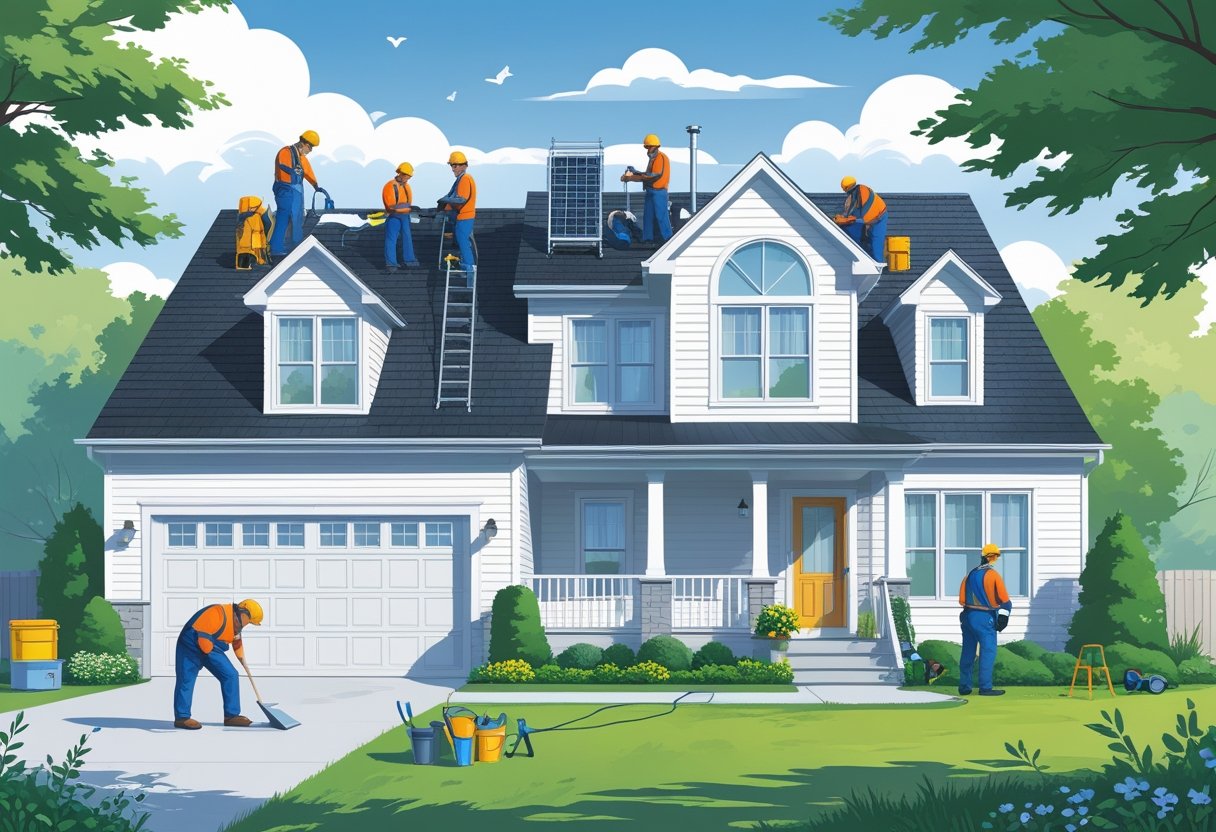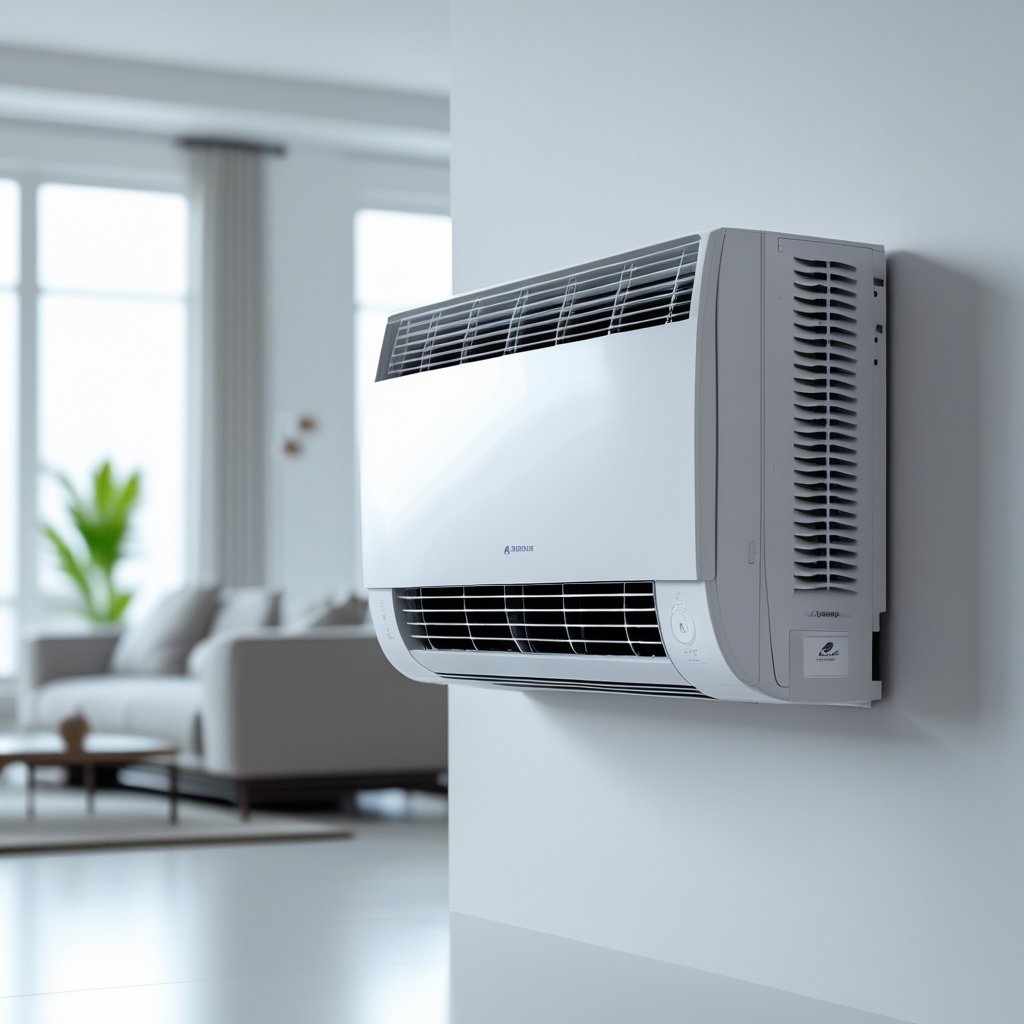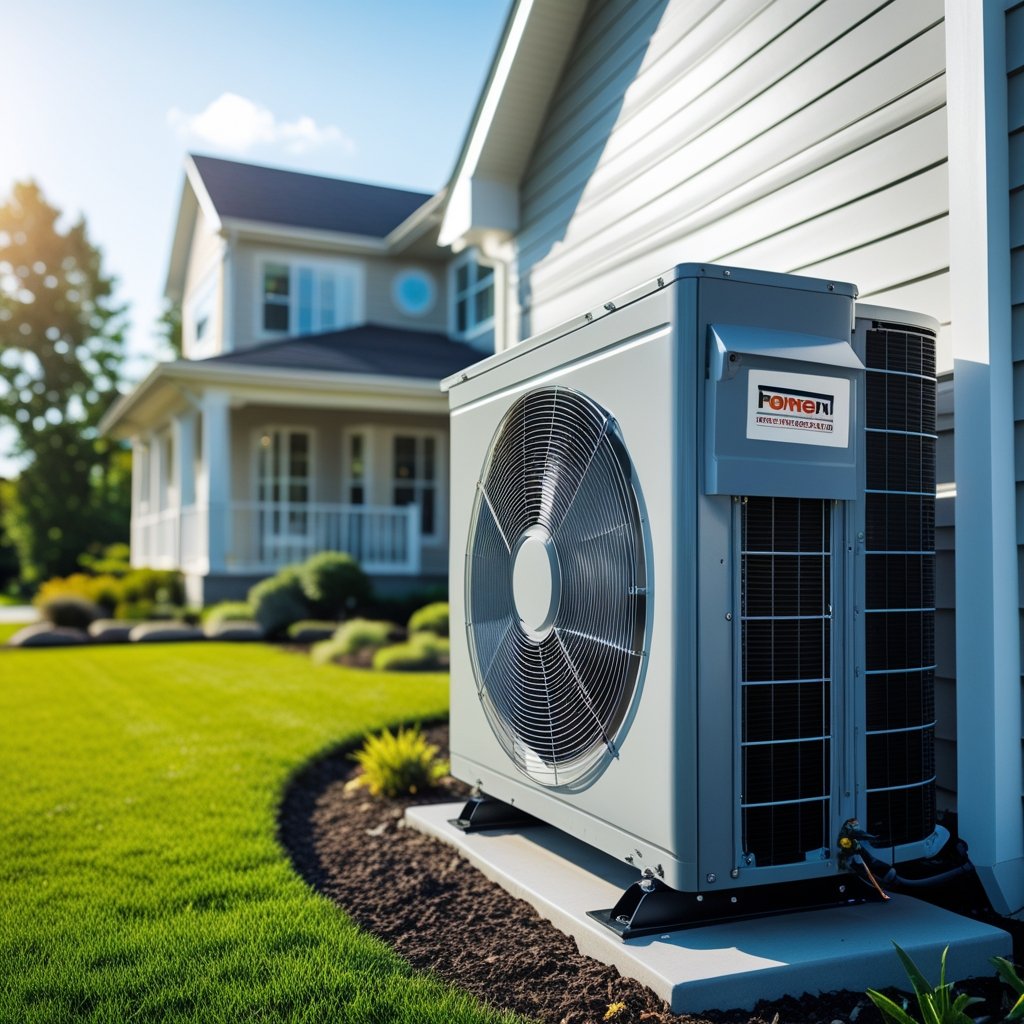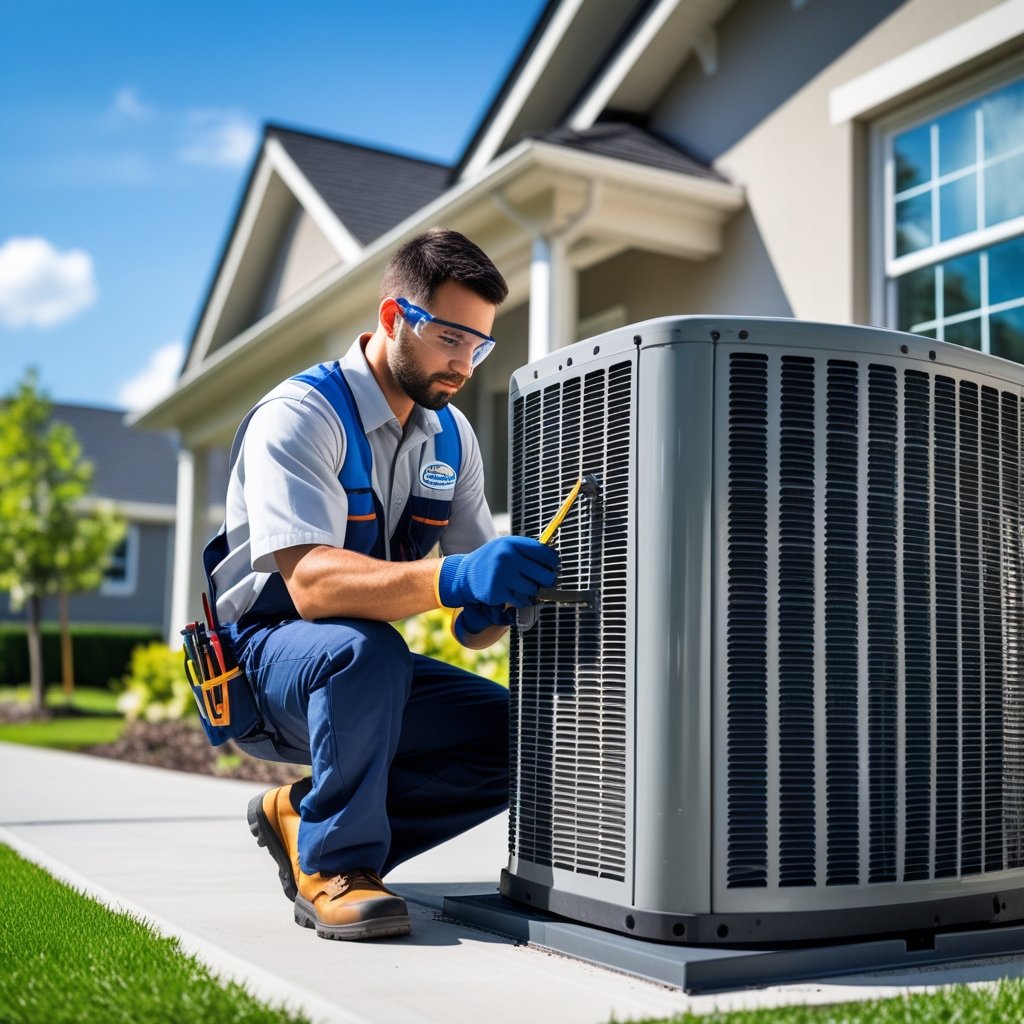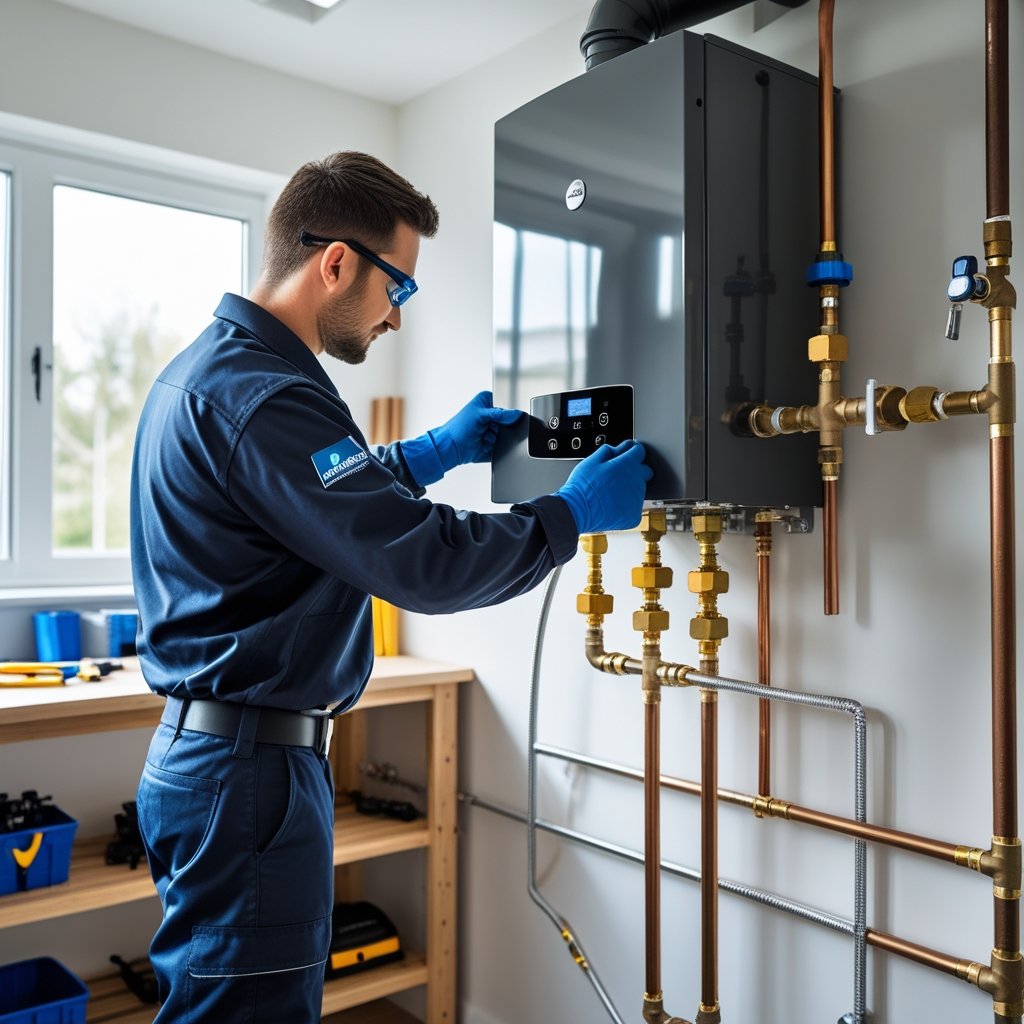Maintaining your home is essential for safety, comfort, and efficiency, yet many homeowners overlook the importance of a structured approach to upkeep. In Pennsylvania, a whole home maintenance plan can help address various needs, from HVAC systems to plumbing and electrical work. This type of plan provides a comprehensive strategy that ensures your home remains in optimal condition, ultimately saving you time and money in the long run.
At Leo Kob Co., we understand the challenges that come with home maintenance. That's why implementing a proactive maintenance plan can enhance longevity and performance of your home's systems. By investing in these services, you can gain peace of mind knowing potential issues are identified and resolved before they develop into costly repairs.
Creating a whole home maintenance plan doesn't need to be overwhelming. With the right guidance and support, such as the services we offer at Leo Kob Co., you can easily establish a routine that suits your lifestyle and keeps your home running smoothly.
Understanding Whole Home Maintenance Plans in Pennsylvania
Whole home maintenance plans are designed to help homeowners manage repairs and upkeep efficiently. These plans focus on maintaining the essential systems of your home, ensuring functionality and comfort. Understanding these plans can help you make informed decisions regarding your home maintenance needs.
What Is a Whole Home Maintenance Plan?
A whole home maintenance plan is a comprehensive approach to maintaining all core systems of your home, such as plumbing, HVAC, and electrical. This kind of plan typically outlines regular inspections, preventive maintenance services, and repairs when needed.
In Pennsylvania, these plans can be part of programs like the Whole Home Repair Program, which provides financial assistance for up to $50,000 to eligible homeowners. Companies like Leo Kob Co. can help tailor these plans specifically for your home's unique needs, ensuring that all systems remain in peak condition.
Key Features of Whole Home Repair Programs
Whole home repair programs in Pennsylvania often include a variety of essential features:
- Preventive Maintenance: Regular checks on key systems to catch issues before they escalate.
- Discounted Repairs: Many programs offer reduced rates for repair services, which can save you money.
- Priority Scheduling: Members might receive priority status for urgent repairs, minimizing downtime.
- Comprehensive Coverage: Plans typically cover multiple aspects of home systems including plumbing, electrical, and HVAC.
These features aim to provide peace of mind and reduce the long-term costs associated with unexpected failures. Working with contractors like Leo Kob Co., you ensure that your home's systems are maintained efficiently, adhering to the highest standards.
Difference Between Repairs and Maintenance
Understanding the difference between repairs and maintenance is crucial for effective home management.
Repairs are actions taken to fix issues that have caused a system to malfunction. This might involve replacing a broken pipe or fixing a malfunctioning HVAC unit.
Maintenance, on the other hand, is proactive. It involves regular upkeep tasks to prevent issues from arising. Examples include routine inspections, cleaning air ducts, and lubricating moving parts in your systems.
By distinguishing between these two processes, you can create a more effective home maintenance strategy that emphasizes preventive care and efficient resource use.
Benefits of a Whole Home Maintenance Plan
A whole home maintenance plan offers significant improvements in both habitability and energy efficiency for your property. It ensures that all critical systems are regularly serviced, enhancing your quality of life while reducing utility expenses. Here are the key benefits to consider.
Enhancing Habitability and Quality of Life
Regular maintenance of your home's systems—such as heating, cooling, plumbing, and electrical—directly impacts your comfort and safety. A well-maintained environment reduces the chances of unexpected breakdowns, helping to prevent potential hazards.
With a whole home maintenance plan, you benefit from priority scheduling for repairs. This leads to quicker responses when issues arise. You'll also gain peace of mind, knowing that aspects like air quality and plumbing reliability are constantly monitored.
Additionally, community safety is improved as well-maintained homes are less prone to incidents like water damage or electrical fires. By choosing a plan through Leo Kob Co., you ensure that your home stays a welcoming sanctuary for family and friends.
Increasing Energy and Water Efficiency
Energy efficiency is another critical advantage of a whole home maintenance plan. Regular system check-ups help optimize your HVAC and plumbing systems, reducing energy consumption. This can result in lower utility bills and a smaller carbon footprint.
Through annual inspections, you'll identify and fix inefficiencies, such as leaky pipes or outdated HVAC units. This goes a long way in enhancing the overall energy performance of your home. Furthermore, many maintenance plans offer eligibility for rebates, adding to your savings.
Investing in a whole home maintenance plan means you're making a proactive choice for better resource management. This can significantly improve your property's water efficiency while keeping your energy costs manageable. With Leo Kob Co., you can ensure that your home remains both energy-efficient and financially sustainable.
Addressing Home Repair Needs and Deferred Maintenance
Home repair needs can arise from various issues, particularly in older housing stock. Deferred maintenance is a significant concern, as it affects not only the comfort and safety of your home but also your investment's longevity. Being proactive can help you maintain habitability and prevent costly repairs down the line.
Common Repair Issues in Pennsylvania Homes
In Pennsylvania, residents often face specific repair issues that can compromise their homes. Common problems include blown fuses, exposed wiring, and moisture-related damages.
Many homes experience electrical problems due to outdated systems that need upgrading. Plumbing issues such as leaks or water heater failures also arise.
It's crucial to address these repairs promptly. Ignoring them can lead to more severe damages, affecting safety and living conditions.
The Importance of Timely Repairs
Timely repairs play a vital role in maintaining a safe and comfortable living environment. Fixing issues like blown fuses or exposed wiring can prevent electrical fires and enhance the home’s overall safety.
Moreover, prompt repairs improve energy efficiency, potentially lowering utility bills. They're beneficial for preserving the value of your home, ensuring that it remains a sound investment.
Working with reliable service providers like Leo Kob Co. can help ensure that repairs are handled efficiently, providing peace of mind.
Deferred Maintenance and Its Impacts
Deferred maintenance occurs when repairs are postponed, leading to escalating problems. This situation often affects habitability, making a home less safe and welcoming.
For instance, unresolved leaks can lead to mold growth, which poses health risks. Over time, deferred maintenance can also decrease property values and create more extensive repair needs.
Addressing habitability concerns early can save homeowners significant costs. Leo Kob Co. specializes in helping you manage these repairs effectively, ensuring your home remains safe and pleasant for years to come.
Financial Assistance and Eligibility for Homeowners
Homeowners in Pennsylvania can access various financial assistance programs designed to help with home maintenance and repairs. Understanding these options, including eligibility criteria, is crucial for obtaining support.
State and Federal Programs Supporting Home Maintenance
The Pennsylvania Department of Community and Economic Development (DCED) administers several programs aimed at assisting homeowners. Notably, the Whole Home Repairs Program offers grants for necessary home repairs through funding from the American Rescue Plan Act. Homeowners may receive up to $50,000 to address repairs and upgrade aging systems.
In addition, there are various public funds available, including low-interest loan programs. These funds are designed to support both homeowners and landlords facing financial hardship while ensuring that properties remain safe and habitable.
Income Limits and Support for Low-Income Households
Eligibility for many of these assistance programs often depends on income levels. Low-income households typically qualify for more substantial financial support, with specific income limits established based on household size.
For example, individual income thresholds may vary, with grants often available for those making less than $38,000 annually. Programs also consider special circumstances, such as disabilities or elderly homeowners. This targeted approach ensures that those who need it most receive timely assistance.
If you're considering taking advantage of these programs, Leo Kob Co. can help guide you through the process and ensure your home is in good condition.
Impact on Communities and Economic Development
The Whole-Home Repairs Program plays a significant role in addressing housing challenges while promoting economic growth. It fosters job creation and supports initiatives aimed at revitalizing neighborhoods and enhancing the community's overall well-being.
Fighting the Housing and Climate Crisis
Many homeowners face difficulties maintaining their properties, which contributes to the ongoing housing crisis. The Whole-Home Repairs Program provides crucial funding for repairs and weatherization efforts, helping residents keep their homes functional and safe. By focusing on energy-efficient upgrades, it also mitigates the impact of the climate crisis. These improvements lead to reduced energy consumption and lower utility bills, making housing more affordable. The program strategically targets both physical upkeep and climate resilience, ensuring that communities can better withstand environmental challenges.
Generating Family-Sustaining Jobs
The economic benefits of the Whole-Home Repairs Program extend beyond housing stability. It creates family-sustaining jobs by supporting local construction and maintenance industries. Programs often include workforce development that connects trainees with opportunities in home improvement sectors. A thriving local labor force contributes to the broader economy, providing stable employment and improved skill sets. Local businesses like Leo Kob Co. benefit as they can tap into this growing demand for home repair and maintenance services. This interconnectedness strengthens community ties and fosters economic resilience.
Anti-Blight Initiatives and Neighborhood Renewal
Anti-blight initiatives are essential for revitalizing neighborhoods that have suffered from decay. By addressing homes in disrepair, the Whole-Home Repairs Program plays a vital role in transforming once-neglected areas. Focusing resources on maintenance and aesthetic improvements helps bolster property values and encourages community pride. As neighborhoods flourish, you may notice an increase in local business activities and investments. Programs aimed at neighborhood renewal foster a sense of safety and belonging, attracting families and individuals to invest in their communities. Your engagement in such initiatives can lead to a more vibrant, economically stable environment for all residents.
Ensuring Program Transparency and Accountability
Transparency and accountability are essential for the success of the Whole Home Repairs Program. By focusing on the management of public funds and enhancing reporting practices, the program can ensure that resources are used effectively and that stakeholders remain informed.
Oversight of Public Funding
Effective oversight is crucial for ensuring that public funds are allocated appropriately. Independent audits and regular reporting on spending can help prevent misuse of resources.
Engaging with local governments and community organizations also plays a role. These entities can offer insights into how funds are being utilized on the ground, ultimately creating a feedback loop that enhances accountability.
In Pennsylvania, initiatives led by organizations can bolster these efforts. They can provide valuable data on project outcomes, ensuring that taxpayer dollars contribute to meaningful improvements in housing quality.
Improving Transparency in the Whole Home Repairs Program
Enhancing transparency in the Whole Home Repairs Program involves clear communication of how funds are distributed and spent. Maintaining an accessible online platform can allow stakeholders to track project progress and funding allocations.
Regular public meetings can facilitate direct engagement with the community, providing a forum for questions and feedback. By doing so, homeowners can voice concerns and stay informed about changes.
Innovative solutions, such as creating a dedicated webpage detailing funding allocations, can also enhance transparency. By implementing these strategies, the Whole Home Repairs Program can build trust within the community.
For businesses like Leo Kob Co., which often works within these frameworks, understanding the importance of transparency in public funding is vital. It aligns with your commitment to integrity and quality service in home repairs and maintenance.
Frequently Asked Questions
This section addresses common inquiries about the Pennsylvania Whole Home Repair Program. The information covers how to apply, eligibility, and available assistance to help ensure clarity for homeowners seeking support.
How do I apply for the Pennsylvania Whole Home Repair Program?
To apply for the Whole Home Repair Program, you will need to visit the official program website where you can find the application form and guidelines. Make sure to have your documentation ready, including proof of income and any property information required.
What are the income guidelines for qualifying for the Whole Home Repair Program in PA?
Income eligibility for the Whole Home Repair Program in Pennsylvania is typically based on area median income (AMI) levels. You will need to refer to the specific guidelines provided, as they can vary by county and household size.
Are there any home improvement grants available in Pennsylvania for seniors?
Yes, Pennsylvania offers various home improvement grants aimed specifically at seniors. These grants can assist with necessary repairs and modifications to ensure homes remain safe and accessible for older adults.
How can I check the status of my application for the PA Whole-Home Repair Program?
To check the status of your application, contact the program’s customer service or access the online portal if available. Ensure you have your application number handy for quicker assistance.
What assistance is available through the $10,000 grant for home improvement in Pennsylvania?
The $10,000 grant can be used for critical home repairs such as roofing, plumbing, electrical work, and other essential maintenance tasks. This financial support helps qualified homeowners enhance safety and livability in their homes.
How can I obtain a PDF application form for the PA Whole-Home Repair Program?
You can obtain a PDF application form by visiting the Pennsylvania Department of Community and Economic Development website. The site typically provides downloadable forms along with guidance on completing the application correctly.
For any further assistance with home repairs or improvements, consider reaching out to professionals like Leo Kob Co. for reliable service.

